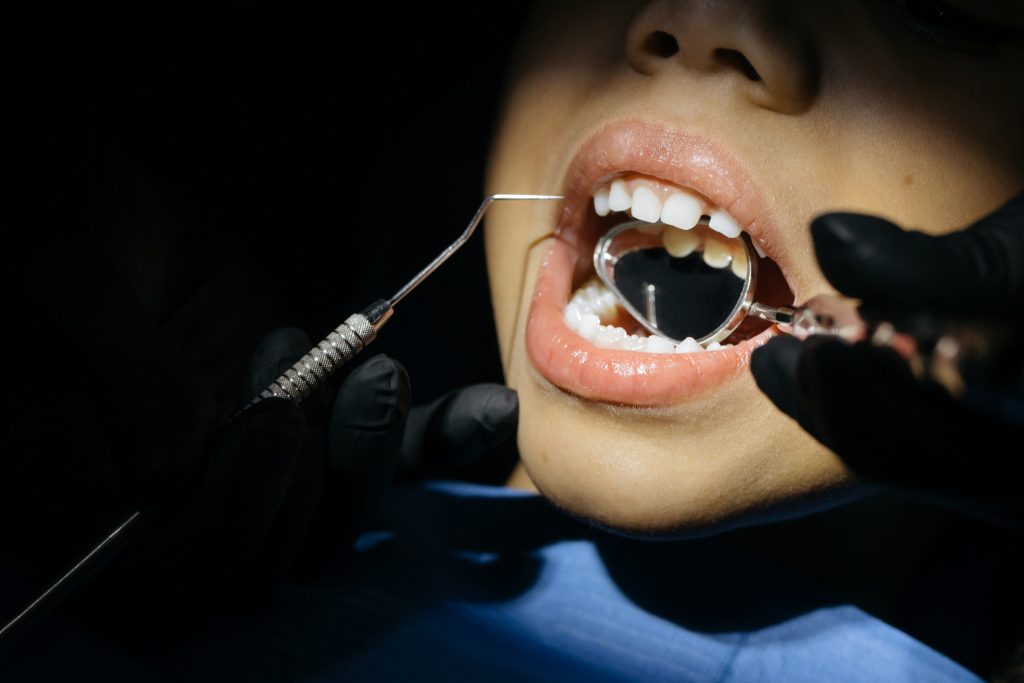
A baby’s tooth germ begins to form before it is born. When the baby is about four months old, the gums begin to erupt the first milk teeth. All 20 milk teeth usually appear by the age of 3, although their pace and sequence of eruption varies.
Preventive measures for maintaining proper oral hygieneA baby’s tooth germ begins to form before it is born. When the baby is about four months old, the gums begin to erupt the first milk teeth. All 20 milk teeth usually appear by the age of 3, although their pace and sequence of eruption varies.
Permanent teeth begin to appear around the age of 6. This process lasts until around age 21. To maintain oral health and to establish good dental and gum care habits, follow these recommendations:
- Limiting sugar consumption , which is one of the main factors in caries.
- Taking care of the right amount of fluoride by giving the child drinking water and regular treatments at the dentist’s office to strengthen the enamel and protect the teeth against caries. You can also supplement with fluoride in other ways (especially in areas where drinking water is not optimally fluoridated). However, before using any supplements or preparations, consult a dentist.
- It is also worth considering protecting the teeth with a sealing treatment that seals the natural grooves on the tooth surfaces. Sealing provides an additional barrier against potential cavities in the tooth tissue. The lacquers are made of plastic and placed by dentists in dental offices.
- Teach children to brush their teeth regularly and correctly and to use dental floss. Find a way to keep brushing and flossing teeth fun for your child. In this way, you will help him develop good oral hygiene habits as well as the health of teeth and gums.
The main obstacles to maintaining a child’s oral health
Here is an overview of the most common tooth and gum health problems in young children.
Babies
- Bottle caries of milk teeth: To avoid this common problem, wipe your gums with a water-soaked swab after feeding. When the first teeth appear, their care should not be neglected. They should be washed regularly with a suitable toothpaste with fluoride, intended for children. The child should use the paste (equal to the size of a pea) under the supervision of an adult. You should also remember to give your child water to drink between meals, instead of sweet juices or drinks.
- Thumb-sucking: The general term for the various sucking habits of babies is “non-nutritional suckling”. It includes thumb or finger sucking and the use of teats. Most modern pediatric care providers agree that these habits have an important formative and nurturing function and that at least in the first years of life (until around age 4) they should be ignored. However, there is general agreement that the sucking habit should subside before permanent teeth begin to emerge. Consult your dentist regarding your baby’s suckling habit.
- White spots on the teeth: As soon as the first tooth appears, usually around 6 months of age, you should start cleaning your baby’s teeth every day and schedule a visit to the dentist.
Small children
- Fear of the dentist: Visiting the dentist can be stressful for a young child. Take care of his comfort and well-being. Let him sit on his lap (he will feel safer), let him observe what is in the office, explore, ask questions and even touch dental instruments (with the consent of the dentist, of course).
- Difficulty developing good habits: Get the whole family involved. Make brushing your teeth a lot of fun, not a daily necessity. Brush your teeth together at the same time and you will develop your own family ritual.
School children
- Love for sweets: Give your kids healthy snacks such as fruit, vegetables, yoghurts, and cheese. Avoid sweets and highly processed foods, as they usually contain a lot of sugar.
- Oral Injuries During Sports: Encourage your child to wear face protection while playing sports to protect their teeth from potential potential injuries and damage.
Teenagers
- Correction Appliance: Make sure teens are brushing properly around the brace and use the dental flosser to remove any food debris.
- Oral Injuries During Sports: Encourage your child to wear face protection while playing sports to protect their teeth from potential accidents.
